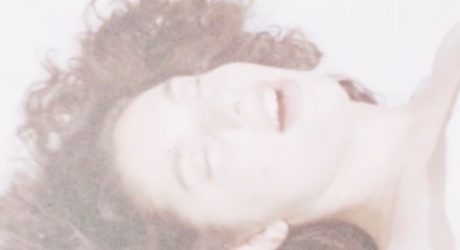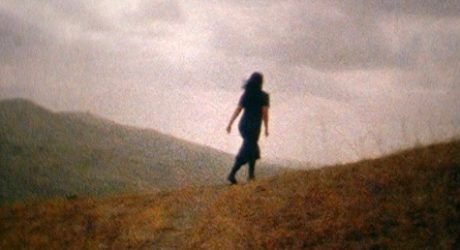
On March 3rd, cléo will be co-presenting Sarah Jacobson’s film Mary Jane’s Not a Virgin Anymore at Toronto’s What the Film Festival (click here for event details). In anticipation, Willow Maclay—who wrote about Jacobson’s 16mm debut I Was a Teenage Serial Killer for our SHORTS issue—has penned an ode to Mary Jane and orgasmic self-realization.
When asked in a 1998 interview with the Austin Chronicle whether she considered herself a filmmaker or a feminist filmmaker, Sarah Jacobson opted for the specificity of the “feminist” label. She went further, saying that she wanted to make movies featuring the kinds of girls she knew in her day-to-day life that she never saw represented on screen.
Jacobson’s films react in opposition to the history and trends of cinema on topics surrounding women. Her 1993 short, I Was a Teenage Serial Killer, railed against genre cinema’s fascination with the dead woman trope in the 90s. In that film she flipped the script, opting to turn the serial killer at the centre into a righteous woman whose reasons for killing aren’t because she’s psychotic, but because she’s fed up with how she’s been treated by men her entire life. It’s cathartic, to say the least.
In her debut feature film, Mary Jane’s Not a Virgin Anymore (1996), Jacobson turns her lens to the topic of sex. Throughout the 80s and 90s, cinema was obsessed with “pimple features”: movies about teenagers figuring out their bodies and themselves. But these films were almost universally phallic, save for a few like Amy Heckerling’s Fast Times at Ridgemont High (1982); and even then, the lasting image from Fast Times is of Phoebe Cates as a masturbation fantasy. In the midst of all these movies about premature ejaculation and losing your virginity, do you ever remember hearing women talk about masturbation, finding their clitoris, or discussing what they want out of sex? If you’re struggling to think of many examples, then you’re familiar with what Sarah Jacobson was feeling in the 90s when she went about a course correction with Mary Jane’s Not a Virgin Anymore.

The film opens with a brutally honest scene showing just how awful a bad fuck can be. As is the case with most movies about teenage sex, Jane (played by Lisa Gerstein) is in the midst of p.i.v. sex with her then boyfriend and he has no idea what he’s doing. Jacobson cuts between Jane’s pained, frustrated reaction and her boyfriend’s unending thrusting. He asks her frequently if she’s going to come, and he seems annoyed that she definitely isn’t. This scene goes on for an uncomfortable amount of time, as Jacobson lingers for much longer than films about teenage sex usually do. Keeping the point of view of the scene completely in Jane’s hands allows the audience to feel how terrible and uncomfortable and embarrassing this sex is in the moment. Isn’t losing your virginity supposed to be special? The truth of the matter is that it almost never is, but movies are rarely ever this honest, making even a recent scene in Lady Bird (2017) where Christine’s boyfriend comes almost immediately—much to her dissatisfaction—still feel painfully honest. Jane asks her boyfriend to stop after it’s clear this isn’t going anywhere, and he rolls off of her. Both of them are embarrassed, but Jane
By opening the film with really crappy sex, Jacobson establishes a point of comparison for later scenes of self-fulfillment through masturbation that are incredibly stark and downright effervescent in their endorphic clarity. Jacobson wanted this film to feel different, and in that same interview with the Austin Chronicle she stated that Mary Jane’s Not a Virgin Anymore needed to be more than just a testament to the fact that “it’s different for girls.” She didn’t want it to be a sex education video, but rather something more illuminating on friendships between young women. Jane and her best friend Ericka (played by Beth Allen) talk frequently and in stark detail about their own sex lives, including topics still mired in controversy to this day, like abortion and masturbation. Ericka’s suggestion that Jane go home and masturbate to find out what she likes about sex is followed by one of the most explicitly positive scenes on female pleasure ever put to screen.
Jacobson shoots Jane’s orgasm in the soft lighting usually reserved for moments of true love—after all, what is “true love” if not coming by your own hand? The scene is radical, shot almost entirely in a close-up of Jane’s face as she reaches higher and higher before climaxing. The image that sticks is her ecstasy at finding this part of herself. She’s thrilled beyond belief and given the space to feel amazing. There’s no shame in the moment. It’s something every girl does and we shouldn’t be ashamed about it. Jacobson also smartly creates a linear pathway of sexual experiences, resulting in a before and after masturbation effect. When Jane is going out with her new boyfriend Tom (Chris Enright), not the thrusting fool from the first frame, she communicates what she wants, because she knows how to make herself happy, and the sex she has with this newer man is all the better for it.
A real happy ending. And yes, I mean that in the orgasmic sense.





